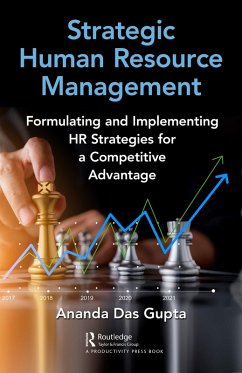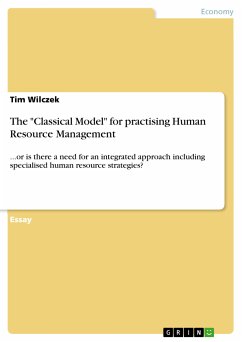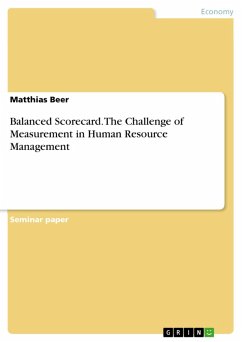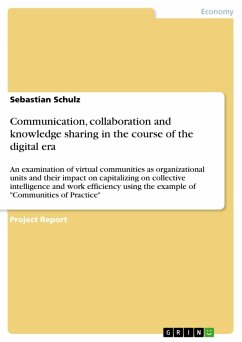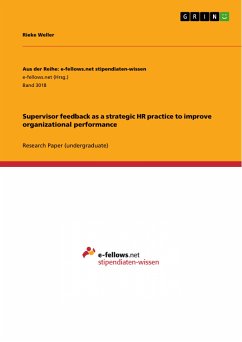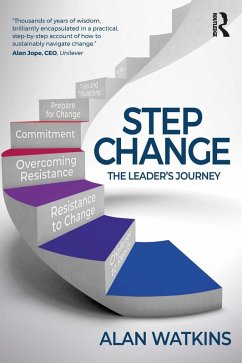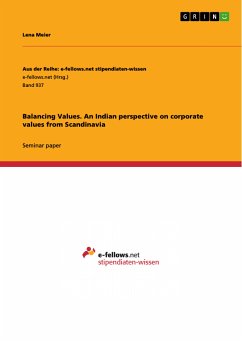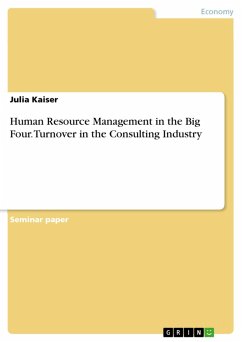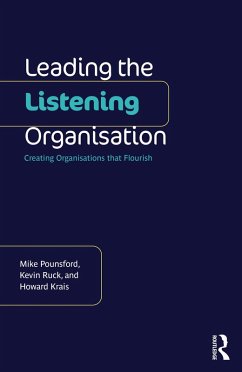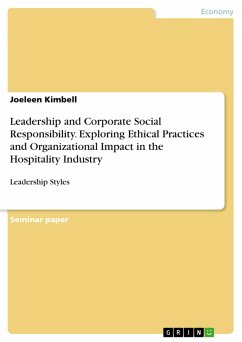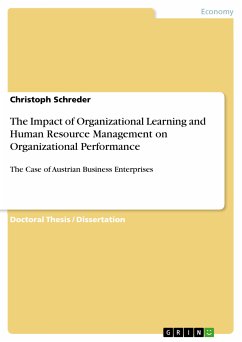
The Impact of Organizational Learning and Human Resource Management on Organizational Performance (eBook, PDF)
The Case of Austrian Business Enterprises
Versandkostenfrei!
Sofort per Download lieferbar
Statt: 52,95 €**
39,99 €
inkl. MwSt. und vom Verlag festgesetzt.
**Preis der gedruckten Ausgabe (Broschiertes Buch)
Alle Infos zum eBook verschenkenWeitere Ausgaben:

PAYBACK Punkte
0 °P sammeln!
Doctoral Thesis / Dissertation from the year 2019 in the subject Leadership and Human Resources - Leadership, grade: 1,0, Salzburg Management Business School (Faculty of Business and Management and Economics), language: English, abstract: The purpose of this dissertation is to develop a model of the linkages between human resource management, organizational learning and organizational performance to test the assumptions and to analyze the correlations in order to substantiate or falsify the original model and to draw respective conclusions for relevant stakeholders in business enterprises as w...
Doctoral Thesis / Dissertation from the year 2019 in the subject Leadership and Human Resources - Leadership, grade: 1,0, Salzburg Management Business School (Faculty of Business and Management and Economics), language: English, abstract: The purpose of this dissertation is to develop a model of the linkages between human resource management, organizational learning and organizational performance to test the assumptions and to analyze the correlations in order to substantiate or falsify the original model and to draw respective conclusions for relevant stakeholders in business enterprises as well as to give suggestions for further research in the field. The research hypotheses that organizational learning positively influences organizational performance et vice versa, and that human resource management positively influences organizational performance directly are developed and the research model is conceptualized, operationalized, and visualized via the resulting theoretical scheme. Also, the development of the research methodology, design, and the selection of research methods is being undertaken, and the data gathering process via pre-study and electronic survey about the interdependencies between the theoretical constructs involved in the research hypotheses are described. The data analysis on the electronic survey about the items influencing the interdependencies between theoretical constructs of human resource management, organizational learning, and organizational performance takes place starting with a factor analysis and based on it the research scheme is being adapted into an evidence-based research model which is analyzed via different descriptive statistical methods, i.e. hierarchical and multiple regression analysis, and Structural Equation Modelling. The practical implementation of research suggestions in Austrian business enterprises is discussed by ways of the best-practice-example of an international business enterprise in the sector of industry. Main conclusions include that: organizational performance cannot be seen as a holistic concept incorporating the end results of all the organization's work processes and activities directed at lasting competitive advantage, but has to be divided into two separated concepts. The main hypothesis that organizational learning positively influences organizational performance in terms of non-financial variables regarding general competitiveness and human resource performance also can be substantiated. Human resource managers can use the findings as reference for future strategic orientation of organizations as well as derive specific implementation measures from it.
Dieser Download kann aus rechtlichen Gründen nur mit Rechnungsadresse in A, B, BG, CY, CZ, D, DK, EW, E, FIN, F, GR, HR, H, IRL, I, LT, L, LR, M, NL, PL, P, R, S, SLO, SK ausgeliefert werden.




